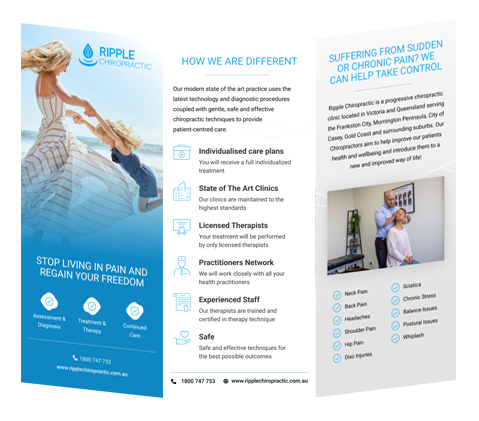Can Chiropractors Help With Jaw Pain?
Last updated on March 23, 2023
Jaw pain affects between 5 -12% of the population and can be very debilitating. The temporomandibular joint (TMJ) is the joint that connects your jaw to your skull. It acts as a hinge to open and close your jaw. TMJ disorder impacts the hinge-like movement of the jaw causing pain and dysfunction.
Common Causes:
- Trauma to jaw
- Sustained opening
- Tooth extraction
- Posture
- Stress
- Arthritis
Common Signs and Symptoms:
- Bruxism (clenching/grinding) – especially at night
- Pain in jaw
- Tinnitus (ringing in the ear)
- Clicking or popping
- Unable to open or close jaw
- Difficulty chewing foods
- Neck pain
- Headaches
- Ear or tooth pain
How Does Chiropractic Care Help?
Depending on the cause and what you need the Chiropractor will tailor the treatment to you. Some of the common modalities used to alleviate and correct jaw pain includes:
Adjustments
A variety of adjustments may be done whether that be manual, activator or drop piece the aim is to restore the joints normal function and stimulate your nervous system to heal that area.
Posture Correction
Bad posture can lead to the shortening of the muscles in the front of your neck. These muscles attach to your head and jaw and can lead to jaw pain. Correcting the cause (posture) not the symptoms (jaw pain) will get you the best long-term results. Your chiropractic will work with you on correcting any postural imbalance you may have.

Prescribe Home Exercises
Exercises will aim to aid and continue the work the chiropractor has done. Depending on what you need the chiropractor will tailor an exercise program to suit your needs. Keep an eye out for future posts demonstrating some of the best TMJ exercises you can do at home!
If you suffer from jaw pain, consider seeing a chiropractor to assess the cause!



